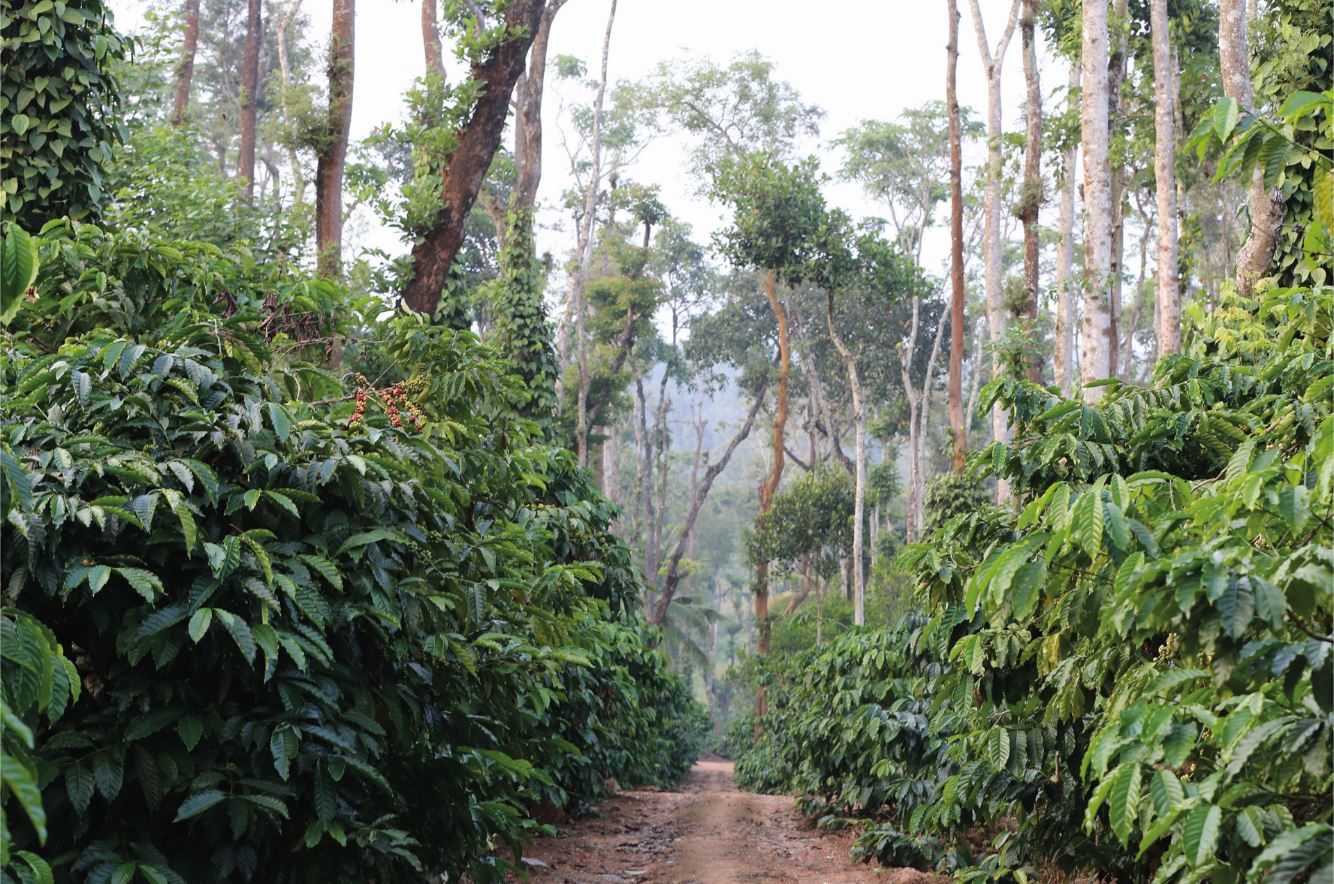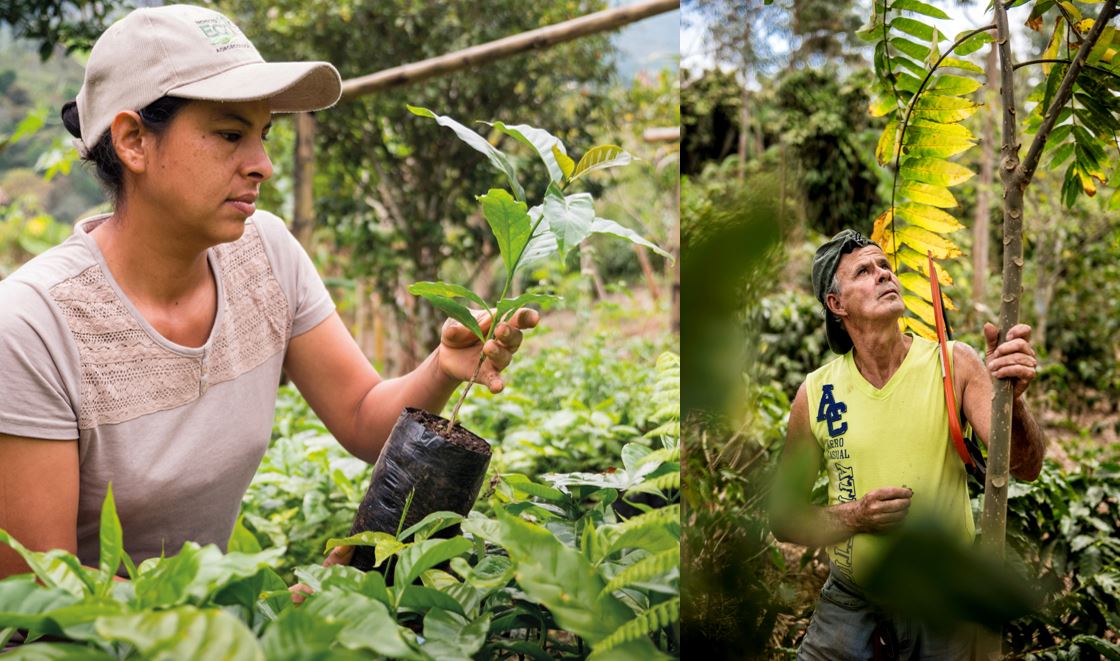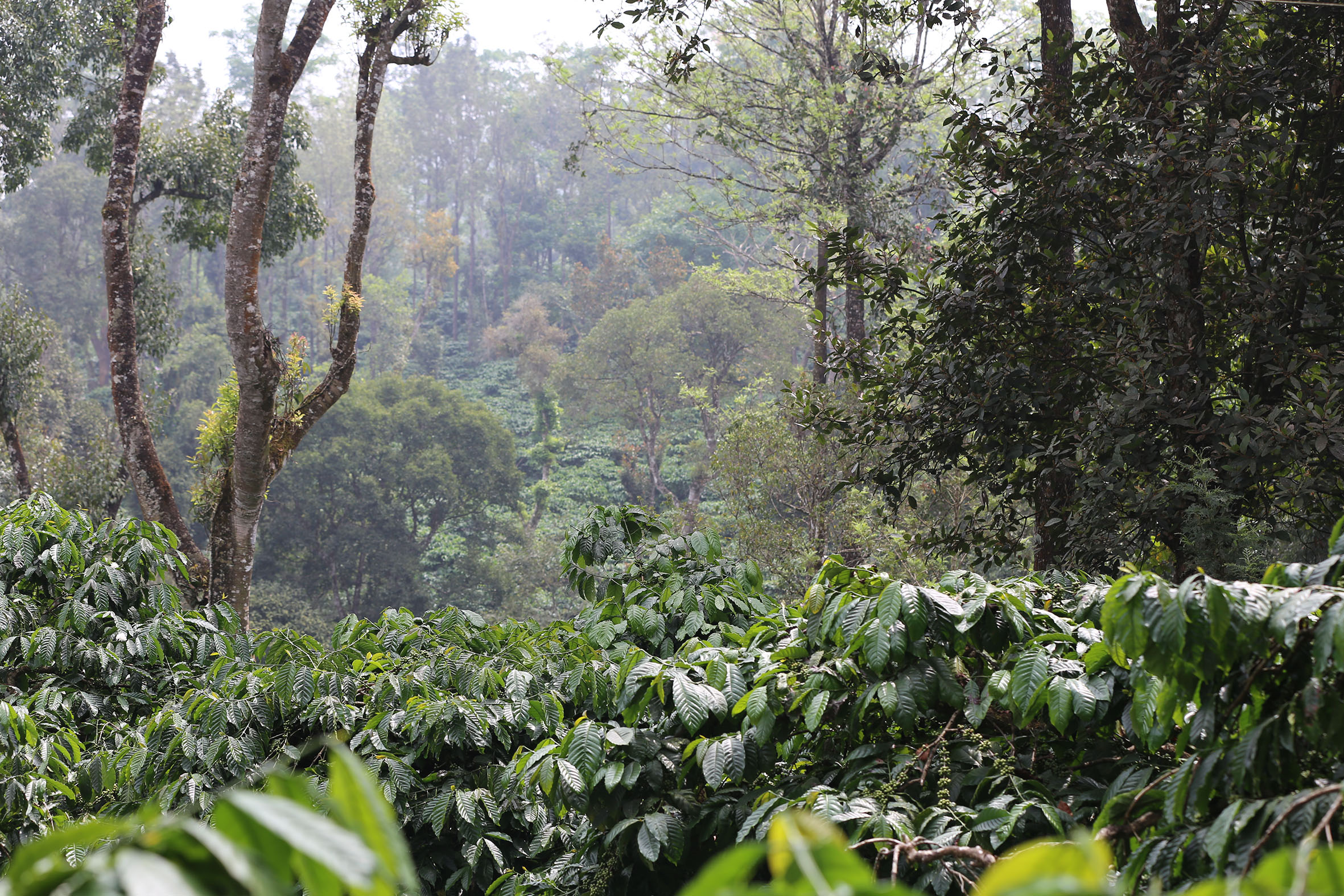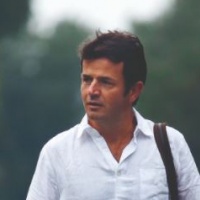Tristan Lecomte : "Trees are the Best Investment on Earth"

Social business is its second nature. Tristan Lecomte is inventing a flurry of new models to serve fragile ecosystems and the people who depend on them. The founder of the pioneering fair trade brand Alter Eco is also the creator of PUR Projet, an initiative that is quite contagious in the corporate world. His talent? He knows how to convince investors and executives of the biggest companies to follow him in his mission: replanting millions of trees. Not long ago, he came up with two new ideas.
INTERVIEW
Sustainability MAG : Let’s talk numbers: How many trees have you planted today?
Tristan Lecomte : Ten million. But that's just one day's worth of deforestation.
And preserved?
400,000 hectares, which corresponds to about 200 million trees in conservation.
During the creation of PUR Projet, you have embarked large groups and many companies in a new concept, the insetting. What is the principle behind it?
The principle is to compensate for carbon within the value chain of companies; for example, by planting trees at the heart of their agricultural or animal sectors. This generates multiple benefits, not only in terms of climate change, but also in terms of securing supplies in terms of quality and quantity, and creating links between the company and its suppliers. It also helps to enhance the value of the brand, to create meaning, which is something that companies are very much looking for as they need to explain their purpose.

How many companies have registered to date?
About 150 companies, from very small to multinationals. Some fairly prestigious brands have joined us because they have an asset attached to values to defend. Among them, Clarins, Accor, Nespresso, Chanel, Louis Vuitton or Ben & Jerry's. Of course we also work with the big ones of coffee and cocoa, such as Louis Dreyfus and Olam.
When it comes to planting a tree, you are a strong supporter of agroforestry...
Yes, the majority of our projects are agroforestry, but just at the watershed level of the entire landscape. It doesn't really make sense to plant trees just in the cropland if there is a desert around, or if there is erosion above it. Planting along watercourses, for example, is absolutely necessary. Our approach is to look at the whole area where the company grows its crops or buys its products, in order to redevelop the ecosystem. This can extend over an area of 10 or 50 km2. We have different models that adapt to the crop, the level of shade required and many other criteria. Nespresso, for example, asked us to carry out a diagnosis in the eleven countries where their coffee producers are located, to find out where and how it is interesting to plant. This evolves according to the challenges they face, such as the degradation of ecosystems, or climatic disturbances that directly impact harvests and jeopardize the security of the supplies.
Naturally, the carbon benefits are certified, but this goes further with benefits on water, soil, biodiversity and of course diversification of the farmers' incomes.

Agroforestry plantations in Guatemala and in Colombia.
Precisely, your approach is genuinely social, how many local producers do you work with?
About 20,000 farmers are involved in our approach. We are in contact with many agricultural cooperatives, which allows us to multiply our impact.
Our projects are as much social as they are environmental. This is very important to us. The climate issue is above all a question of international solidarity since rich countries are responsible for 90 % of emissions over the last 50 years and it is therefore their responsibility to finance these clean development mechanisms. This is the true spirit of carbon offsetting, which is above all a tool of international solidarity. We are totally different from the meaningless and soulless compensation that can sometimes exist.
We are developing projects that have a real impact and that are there to help the most disadvantaged people on Earth, the very people who are most affected by climate change even though they are the least responsible for it and the least equipped to deal with it. That is the challenge of the carbon offsetting that we practice.
From an environmental point of view, how long does it take to see the benefits, in terms of carbon capture, soil regeneration, etc.?
It goes very fast. In a humid tropical environment, as early as 2 or 3 years past, some trees grow already 15 or 20 meters high. In the Peruvian Amazon where we planted 5 million trees, it grows very fast and the benefits are immediate in terms of carbon sequestration and positive impacts on soil and water. The actual crediting period, during which the tree will generate carbon, corresponds to its first 20 years, then it is kept for another 20 years, so a carbon project is spread over 40 years.
Have you been able to quantify the average ROI of a tree?
Yes. It's 68 %. Trees are the best investment on Earth. We created the Pur Lab, a department that establishes partnerships with major universities such as the Havard Kennedy School, Yale School of Forestry and AgroParisTech. We conducted a scientific review of 1,200 existing studies on the various benefits of trees, which we modelled in a large matrix. This matrix makes it possible to assess the tree's potential for value creation through proxi values. It is in a humid tropical environment that a tree generates the most benefits. In Peru, for example, a tree costs 3 euros and generates up to 19 euros per year in economic and ecosystem services. What is interesting to note, is that the benefit of carbon sequestration represent only 30 cents out of this total. We often think only of the climate, but in reality this is only a small part of the many benefits of plantations.
The approach is sometimes quite distant from the company's core business... Take the case of Accor and the famous "tree resolution" that its shareholders approved with a target of 10 million trees planted by 2021. Here again, PUR Project is at work. Explain the idea...
This is a good example where trees are used as an incentive to reduce emissions and energy expenditure. In all Accor hotels, if you reuse your towel, half of the profits are reinvested in tree planting. Thanks to this initiative, they have already saved 15 million euros and replanted 7 million trees. With them, we have opened 30 projects around the world and operated as close as possible to their hotels.
The idea is to plant trees within the value chain but not necessarily at the supplier's premises. It's not necessarily intra-chain. The idea is simply to articulate the climate project of tree planting with the company's strategy. In reality, you can use the tree for everything. To the company's strategic priorities, to its commercial stakes, we are going to respond with trees.
The challenge today is colossal. To compensate massive deforestations, you say that we would have to plant 10 million trees a day... In short, we need to step it up. Is this the idea of your latest venture, Tree Impact?
Exactly, that's the idea of setting up an impact fund around trees. We are going to invest in four major impact projects in Peru, Colombia, Indonesia and Uganda. With two big investors and, 100 million euros to start with. The interest they identify is, first of all our ability to source real impact projects, because there are a lot of "fake" impact projects in reality. But also our projects are very profitable. Until now, when companies buy carbon credits or trees, it is seen a bit like a donation. Our approach is different. It is a real investment with a tangible return on investment. It's interesting because, if we can prove that we can achieve 7 % IRR on plantations, then we've won, we're the kings of oil, sorry, the kings of the forest! (laughs). We already have a model that works because we planted 330 hectares in Peru for 3 years to test this scheme.
Another advantage is that it will undoubtedly become a safe haven, because it's uncoupled from the traditional financial markets. It's a way of having a more diversified portfolio. And above all, it's a meaningful investment!

How many trees do you intend to plant?
Our first goal today is 40 million trees. And then we want to plant hundreds of millions or even billions of trees, in short what is needed to compensate for the current climate footprint - and the task is huge!
The world of finance can play a key role here and Luxembourg is clearly a decisive place for this. All too often, finance and the environment are pitted against each other. If we want to change scale, it is necessary today to reconcile the two worlds, to bring complementarity up to date. It is imperative to show that it is possible to make money from environmental projects. Regenerating the planet is now a job for investors.
And you chose Luxembourg for your first fund...
Yes, this is the place to be if you want to attract a maximum number of financiers. Being in Luxembourg puts us in the orbit of European and world finance.
Any other projects in sight?
We are currently working on another project where we are transposing the idea of Pure Project to the issue of plastics. The idea is to evaluate not the carbon footprint but the plastic footprint of companies, committing them to reduce their use and compensate for what they have not yet been able to eliminate. This is at the pilot stage in Thailand where we are working with the cosmetics company Caudalie. We are working with local communities highly exposed to plastic pollution to recover debris through what we call the "Zero Waste project". The principle is the same, applied to another major issue!
-Article published on April 1, 2020-

Tristan Lecomte
is the founder of the pioneering fair trade brand Alter Eco. He is also the creator of PUR Projet, which mission is to help companies regenerate the ecosystems on which they depend.
Also to be read in the dossier "The Hindered Power of Trees":



